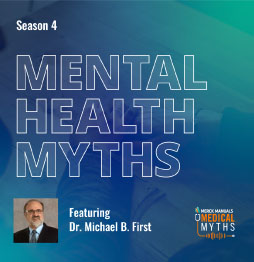Schizophrenia and related psychotic disorders—brief psychotic disorder, delusional disorder, schizoaffective disorder, schizophreniform disorder, and schizotypal personality disorder—are characterized by psychotic symptoms, and often by negative symptoms and cognitive dysfunction.
Psychotic symptoms include delusions, hallucinations, disorganized thinking and speech, and bizarre and inappropriate motor behavior (including catatonia).
Negative symptoms are a decrease in or lack of normal emotions and behaviors. For example, people may lack motivation and their face may not express emotions.
Cognitive dysfunction refers to problems with thinking (cognition), such as being able to focus one's attention, remember things, have self-control, and think flexibly.
Diagnosis and treatment of schizophrenia and related psychotic disorders are based on symptoms and the course of the specific illness.

